| Country | Student fee |
|---|---|
Iceland 2016/17 - student fees and grants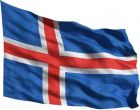 | All students at public higher education institutions pay administrative registration fee of ISK 75 000 per academic
year regardless of the study programme. Over 80 % of students at 1st and 2nd cycle study at public higher
education institutions.
The same rules apply to international students. |
Ireland 2013/14 - student fees and grants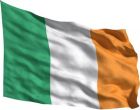 |
For the first cycle, full-time EU students are exempt from full tuition fees if they meet the terms of the 'free fees scheme', but pay a 'student contribution' of EUR 2 500 per academic year. Full-time EU students who do not meet the terms of the scheme must pay a consolidated fee covering both tuition fee and student contribution - the average EU consolidated fee is EUR 6 000.
For the second cycle, the majority of students pay tuition fees. Part-time fees are generally half of full tuition fees for full-time programmes. International student fees are generally two to three times that of full EU fees and are set by the higher education institutions. |
Ireland 2015/16 - student fees and grants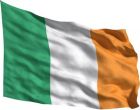 | For the first cycle, full-time EU students are exempt from full tuition fees if they are first-time undergraduates, hold inter alia EU/EEA/Swiss nationality in their own right, and have been ordinarily resident in an EU/EEA/Swiss state for at least three of the five years preceding their entry to an approved third level course. However, these students nevertheless pay a 'student contribution' of EUR 3 000 per academic year. Full-time EU students who do not meet the terms of the 'free fees' scheme must pay a consolidated fee covering both tuition fee and student contribution – the average EU consolidated fee is EUR 6 000. For the second cycle, the majority of students pay tuition fees that are set by higher education institutions, and that may reach EUR 30 000 per year. Part-time fees are generally half of full tuition fees for full-time programmes. In both cycles, international student fees are generally two to three times higher than those of full EU fees and are set by the higher education institutions. |
Ireland 2016/17 - student fees and grants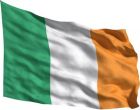 | Full-time first cycle students pay a 'student contribution' of EUR 3 000 per academic year. First-time
undergraduates who are EU/EEA/Swiss citizens and have been resident in EU/EEA/Switzerland for at least three
of the five years are exempt from full tuition fees. Those who do not meet the 'free fees' criteria must pay a
consolidated fee covering both tuition fee and student contribution – the average EU consolidated fee is
EUR 6 000.
For the second cycle, the majority of students pay tuition fees that are set by higher education institutions, and that may reach EUR 30 000 per year. Fees for short cycle higher education programmes are set by individual higher education institutions. No information is available on the fee range. Part-time fees are generally half of full tuition fees for full-time programmes. International student fees are generally two to three times higher than those of full EU fees and are set by the higher education institutions. |
Italy 2013/14 - student fees and grants |
Higher education institutions (HEIs) define the fees at the beginning of the academic year and they differentiate them according to the students' socio - economic status, field of studies, cycle, study status - full-time or part-time - and year of registration. Furthermore, HEIs are obliged to exempt students benefiting from student support, and they can also exempt some students on the basis of merit. The overall amount of fees at the end of financial year should not be higher than 20 % of public funding. The amount of fees and the exemptions are calculated only ex- post and only for statistical purposes. The amount of fees shown in the diagram is calculated on the basis of the most recent statistical data available and as the mean amounts for all registered students. International students pay the same fees as national students. |
Italy 2015/16 - student fees and grants | Higher education institutions (HEIs) define the fees at the beginning of the academic year and they differentiate them according to the students' socio-economic background, field of studies, cycle, study status – full-time or parttime – and year of registration. Furthermore, HEIs are obliged to exempt students benefiting from student support, and they can also exempt some students on the basis of merit. The overall amount of fees at the end of financial year should not be higher than 20 % of public funding. The Ministry responsible for higher education sets the amount of the minimum fee for enrolment. For the academic year 2015/16, it is EUR 199.58. The fee amounts shown in the diagram are calculated on the basis of the most recent statistical data available (2013-2014). International students pay the same fees as national students. |
Italy 2016/17 - student fees and grants | Higher education institutions (HEIs) define their fees at the beginning of the academic year, differentiating
according to the students' socio-economic background, field of studies, cycle, study status – full-time or part-time –
and year of registration. Furthermore, HEIs are obliged to exempt students benefiting from student support, and
may also exempt some students on the basis of merit. The total fee income at the end of financial year should not
be higher than 20 % of public funding. The ministry responsible for higher education sets the minimum enrolment
fee. For the academic year 2016/17, it is EUR 201.58.
Part-time students pay proportionally less than full-time students. Fees for short cycle higher education programmes vary depending on the provider. International students pay the same fees as national students. |
Latvia 2013/14 - student fees and grants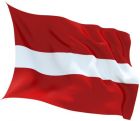 |
Students studying on state subsidised places do not pay fees. 55 % of 1st cycle students and 40 % of 2nd cycle students pay fees.
The majority of students, including those enrolled in evening courses, distance courses or courses offered jointly with other universities pay fees. Fee amounts vary by field and course load. Each higher education institution can set its own fees. The fees range from LVL 680 to 3 400 per year for full-time studies and from LVL 630 to 1 460 for part-time studies in the 1st cycle. In the 2nd cycle fees range from LVL 800 to 4 582 for full-time studies and from LVL 640 to 2 288 for part-time studies per year. For college programmes or short-cycle programmes (ISCED 5B) the fees range from LVL 550 to 900. However, some of the higher education institutions apply a diversified tuition fee amount throughout the study years, i.e. usually the fee in the first year of studies is the lowest. The amounts of fees for international students may differ in some study programmes (e.g. medicine, dentistry, engineering) and range from LVL 980 to 7 028 (2012/13) in the 1st cycle. In the 2nd cycle, fees range from LVL 1 100 to 8 434 for full-time studies and from LVL 650 to 6 470 (2012/13) for part-time studies per year. The students from EU and EEA are treated as home students. |
Latvia 2015/16 - student fees and grants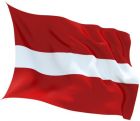 | Students studying on state subsidised places do not pay fees. 63 % of 1st cycle students and 49 % of 2nd cycle students pay fees (2014/15). The majority of students, including those enrolled in evening courses, distance courses or courses offered jointly with other universities pay fees.Fee amounts vary by field and course load. Each higher education institution (HEI) can set its own fees. Fees are lower in regional HEIs and highest in the capital Riga. The fees range from EUR 1 280 to 7 000 per year for fulltime studies and from EUR 700 to 2 700 for part-time studies in the 1st cycle. In the 2nd cycle, fees range from EUR 1 080 to 8 626 for full-time studies and from EUR 880 to 12 500 for part-time studies per year. For short-cycle tertiary education or college programmes (ISCED level 5), the fees range from EUR 555 to 7 400 for full-time studies per year and EUR 570 to 2 422 for part-time studies per year. Fees in a long-cycle programmes (medicine, paediatrics, dentistry) varies from EUR 2 800 to 11 500 per year. The amounts of fees for international students may differ in some study programmes (e.g. medicine, dentistry, engineering) and are usually higher. Students from EU and EEA are treated as home students. However, fees for studying in programmes provided in the English language are usually higher than of the programmes with the Latvian language of instruction. |
Latvia 2016/17 - student fees and grants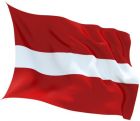 | There are two types of financial status for students: state-funded and self-financed. Students studying on state
subsidised places do not pay fees. These places are allocated on the basis of academic merit – currently available
in priority areas; natural sciences, computer sciences and engineering.
49.4 % of 1st cycle students and 38.4 % of 2nd cycle students (full-time and part-time together) are self-financing and pay fees. Almost all part-time students also pay fees. Each higher education institution (HEI) sets its own fees, tending to be lower in regional HEIs and highest in Riga. In the first cycle, annual fees range from EUR 720 to 6 403 for full-time and from EUR 800 to 2 600 for part-time studies, while in the 2nd cycle, from EUR 1 080 to 12 800 for full-time and EUR 980 to 14 500 for part-time studies. 43.6 % short-cycle tertiary or college programmes students pay fees ranging from EUR 700 to 3 800 for full-time studies per year and EUR 555 to 7 400 for part-time studies per year. Fees in programmes provided in English language are usually higher than programmes in Latvian. Fees for international students (non-EU/EEA) are higher, ranging from EUR 1 600 to 15 000. |
Liechtenstein 2013/14 - student fees and grants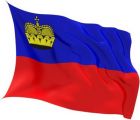 | All students at the University of Liechtenstein pay an annual fee of CHF 1 500 (CHF 750 per semester).
The same amount of fees is applicable to all students including the international ones. |
Liechtenstein 2015/16 - student fees and grants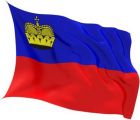 | Higher education institutions define their fee systems autonomously. All students (including the international ones) at the University of Liechtenstein pay an annual fee of CHF 1 700 (CHF 850 per semester). |
Liechtenstein 2016/17 - student fees and grants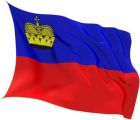 | Higher education institutions define their fee systems autonomously.
All students (including the international ones) at the University of Liechtenstein (the only public higher education institution in Liechtenstein) pay an annual fee of CHF 1 700 (CHF 850 per semester). There is no short cycle programme in higher education in Liechtenstein. |
Lithuania 2013/14 - student fees and grants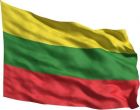 |
Students studying in state subsidised places do not pay fees. There are exceptions after changing study
programme (if study programme fees are higher than previous study programme fees).
All fees vary depending on the study programme (influenced by study field) or study forms (full-time/ part-time). In the first cycle, fees range between LTL 3 238 and 18 162 per year in full-time studies and between LTL 2 159 and 12 108 per year in part-time studies. In the second cycle, fees range between LTL 7 308 and 21 578 per year in full-time and from LTL 4 872 to 14 386 per year in part-time studies. Higher education institutions (HEIs) can determine higher tuition fees for citizens of non-EU and non-EEA countries. |
Lithuania 2015/16 - student fees and grants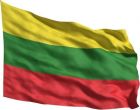 | Students studying in state subsidised places do not pay fees. There are exceptions if students change their study programme. All fees are determined by Government and vary depending on the study programme (influenced by study field) or the form of study (full-time/part-time). First cycle fees range from EUR 1 053 to 11 587 per year in full-time studies and between EUR 702 and 7 725 per year in part-time studies. Second cycle fees range from EUR 2 242 and 12 581 per year in full-time and from EUR 1 495 to EUR 8 387 per year in part-time studies. Higher education institutions (HEIs) can set different fees for citizens of non-EU and non-EEA countries. |
Lithuania 2016/17 - student fees and grants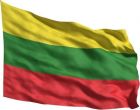 | There are two basic types of financial status for students: state-funded and self-financed. The Ministry of Education
and Science determines the maximum amount of fees that it will cover for each study field and form of study (full-
time/part-time). However, higher education institutions (HEIs) have autonomy to set their own fee levels. Thus
students studying in state subsidised places have at least part of their fees paid by the government.
Annual first-cycle fees range from EUR 1 076 to 11 610 for full-time, and EUR 717 to 7 740 for part-time. Annual second cycle fees range from EUR 2 265 to 12 604 for full-time and EUR 1 510 to EUR 8 403 for part-time. There is no short cycle higher education in Lithuania. HEIs can set different fees for citizens of non-EU and non-EEA countries. |
Luxembourg 2015/16 - student fees and grants | First cycle students pay an enrolment fee of EUR 400 for semesters 1 and 2, and EUR 200 for semesters 3 to 6.
Fees for bachelor programmes where only the first two semesters are taught in Luxembourg (Medicine, Pharmacy
and English), amount to 200 EUR per semester.
In the second cycle, for 80 % of the Master programmes at the University of Luxembourg, students pay EUR 400/year. Only students in Banking, Finance and Wealth management pay the maximum yearly fees. Enrolment fees for short cycle programmes 'Brevet de technicien supérieur' are EUR 100 per semester. The same conditions apply to part- and full-time students. International students pay the same fees as national students. |
Malta 2013/14 - student fees and grants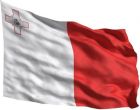 | 1st cycle: No fees apply for Maltese and EU students following first-cycle full-time courses at the University of Malta and
the Malta College of Arts, Science and Technology (MCAST). Part-time courses are only offered by the University of
Malta. Fees for part-time studies range from EUR 350 to 1 200/semester. The most common value is EUR 350/semester.
2nd cycle: An annual enrolment fee of EUR 400 applies for all Maltese and EU students following second-cycle full-time day courses at the University of Malta. Students following second-cycle degree courses offered jointly by foreign universities pay higher fees which are not quoted in the table. MCAST does not provide second-cycle degree courses. Full-time evening courses range from EUR 1 100 to 1 600/semester (most common EUR 1 450) and part-time studies from EUR 550 to 2 600/semester (most common value EUR 725). International students pay fees for both first-cycle and second-cycle degree programmes, which fees are higher than those paid by Maltese and EU nationals. |
Malta 2015/16 - student fees and grants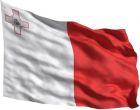 | First cycle: No fees apply for Maltese and EU nationals following first-cycle full-time courses at the University of Malta and the Malta College of Arts, Science and Technology (MCAST). Part-time courses are only offered by the University of Malta. The majority of fees for first-cycle part-time students courses are EUR 900 per year. Second cycle: An annual fee of EUR 400 applies for all Maltese and EU nationals following second-cycle full-time courses at the University of Malta. Students following courses offered jointly with foreign universities pay higher fees. Fees for full-time evening courses range from EUR 2 200 to EUR 9 666 per year (most common is EUR 3 200) and fees for part-time studies range from EUR 1 200 to EUR 5 550 per year (most common is EUR 1 600). International students pay fees for both first-cycle and second-cycle degree programmes, and these fees are higher than those paid by Maltese and EU nationals. |
Malta 2016/17 - student fees and grants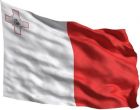 | No fees apply for Maltese and EU/EFTA/EEA nationals following first-cycle full-time and part-time day courses at
the University of Malta, Malta College of Arts, Science and Technology (MCAST). Part-time courses are only
offered by the University of Malta. Part-time evening courses are self-financing (EUR 900/year).
In the second cycle, the annual fee is EUR 400 for all Maltese and EU nationals at the University of Malta. No fee applies if the 2nd cycle programmes is required to practise a profession. Students following 2nd cycle courses offered jointly with foreign universities pay higher fees. Annual fees for full-time evening courses range from EUR 400 to EUR 14 500 (most common is EUR 400). Annual fees for part-time studies range from EUR 400 to EUR 4 500 (most common is EUR 1 600) There is no fee for EU/EFTA/EEA nationals in full-time short cycle programmes at the University of Malta, the Malta College of Arts, Science and Technology (MCAST) and the Institute for Tourism Studies (ITS). Students in part-time short cycle programmes pay EUR 900 per year. International students pay fees, and these are higher than those paid by Maltese and EU nationals. |
Montenegro 2013/14 - student fees and grants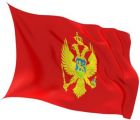 | 25 % of total number of students at the public University of Montenegro (only public higher education institution in
Montenegro), have status of the budget financed students. 75 % of students at the University of Montenegro pay
tuition fee.
Minimum fee for self-financed students is EUR 500/year for the first cycle; maximum fee is EUR 1 000/year. The most common fee in the first cycle is EUR 500/year. In the second cycle (master study programme) fees are between EUR 1 500 and 2 000/year. All master degree students at the public university are obliged to pay fees. In accordance with the Law on Higher Education foreign citizens have the right to be admitted into the study programmes in Montenegro under the same conditions as Montenegrin citizens who pay the tuition fees in compliance with this law and the institution statute, unless otherwise stipulated by an international agreement. |
Montenegro 2015/16 - student fees and grants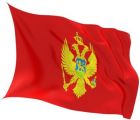 | 1st cycle Students not financed from the state budget pay tuition fees. In the first cycle at the public higher education institution University of Montenegro (the only public university) the fee is between EUR 400 and EUR 1 000 per year, depending on the study profile. The most common fee level is EUR 500. Self-financing students who pass all exams may become budget-funded students if there are places available on their study programme. Those students are chosen on the basis of the ECTS gained and academic performance during their studies. There is no distinction between full and part time students. 2nd cycle Fees at the second cycle are between EUR 1 500-2 000 per year. International students are charged the same fees as Montenegrin students. |
Montenegro 2016/17 - student fees and grants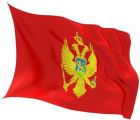 | There are two basic types of financial status for students: state subsidised and self-financed. The government
annually decides about the number of students whose tuition fees it will pay (in specific study fields and the
capacities of institutions). To receive state-financing students need to meet certain performance criteria. State-
financed students who fail to meet the criteria may continue their studies as self-financing students.
Self-financing students in the first cycle at the University of Montenegro (the only public university) pay between EUR 500 and EUR 1 000 per year, depending on the study profile. The most common fee level is EUR 500. Self- financing students who pass all exams may become budget-funded students if there are places available on their study programme. Those students are chosen on the basis of the ECTS gained and academic performance during their studies. Fees at the second cycle are between EUR 1 500-2 000 per year. There is no short cycle programme at higher education institutions in Montenegro. International students are charged the same fees as Montenegrin students. |
Netherlands 2016/17 - student fees and grants | Fees are determined centrally (currently EUR 1 984 for 2016/17) and have to be paid by all students (1st cycle, 2nd cycle, short cycle).
Students in part-time programmes or programmes combining study and work (dual courses) pay between EUR 1 163 and 1 984 upon the
decision of the higher education institution.
The fees of a second bachelor or master in higher professional education are on average between EUR 6 500 and 7 000, while fees for a second university bachelor are on average EUR 8 000, with a maximum of EUR 32 000 for medicine. The amount for a second university master is about EUR 12 000, with a maximum of EUR 32 000 for economics (one programme) and health care programmes, including medicine. International students – outside a country in the EEA, Surinam or Switzerland – pay non statutory fees determined by the higher education institutions without any guidelines from the Ministry. |
Norway 2013/14 - student fees and grants | No fees at public higher education institutions, catering for over 85 % of all students in Norway.
Government-dependent private higher education institutions may on certain conditions charge tuition fees. International students do not pay fees at public higher education institutions. |
Norway 2015/16 - student fees and grants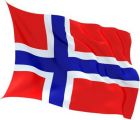 | No fees for either full or part time students at public higher education institutions, which cater for over 85 % of all students in Norway. Government-dependent private higher education institutions may on certain conditions charge tuition fees, and these fees must be used to benefit students. International students are treated as home students, and do not pay fees at public higher education institutions. |
Norway 2016/17 - student fees and grants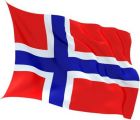 | No fees for either full- or part-time students at public higher education institutions, which cater for over 85 % of all
students in Norway.
Government-dependent as well as independent private higher education institutions may on certain conditions charge tuition fees, and these fees must be used to benefit students. International students are treated as home students, and do not pay fees at public higher education institutions. HEIs may charge tuition fees for certain specialised/tailored courses within continuing and further education aimed at people in employment. |
Nothern Ireland 2013/14 - student fees and grants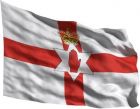 |
1st cycle full-time – fees are set by institutions but capped at a maximum of GBP 3 575 for institutions with an access agreement outlining
its provision of student support, including bursaries and outreach activities. Students are not required to pay up front and can apply for a
loan to cover the full fee. Repayments are income-contingent and made at the rate of 9 % of income above the threshold of GBP 16 365.
These fees apply to Northern Ireland and EU student; fees for UK students from England, Scotland and Wales are charged up to GBP 9 000
though for students from Wales this can be offset by a fee grant from the Welsh Government.
1st cycle part-time – fees are unregulated. 2nd cycle – fees are unregulated. The ‘most common’ fee (GBP 3 900) represents an indicative amount for doctoral research programmes (which may incorporate masters level study) set by the Research Councils and used as a guide by many institutions. Actual fees charged vary widely, particularly for taught programmes. 1st and 2nd cycle international students – fees are unregulated. |
Nothern Ireland 2015/16 - student fees and grants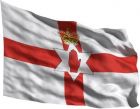 | 1st cycle full-time – fees are set by institutions but capped at GBP 3 805 for institutions with an access agreement outlining its provision of student support, including bursaries and outreach activities. Students are not required to pay up front and can apply for a loan to cover the full fee. Repayments are income-contingent and made at the rate of 9 per cent of income above the earning threshold of GBP 17 335. The Student Loans Company (SLC) also funds Northern Irish-domiciled students to study elsewhere in the UK where they may have to pay up to GBP 9 000. The average amount paid by SLC per student in 2013/14 was GBP 3 930. 1st cycle part-time – fees are unregulated and loans are not available. 2nd cycle – fees are unregulated and vary widely. The ‘most common’ figure of GBP 4 052 represents the indicative fee level for research students in 2015/16, set by Research Councils UK. 1st and 2nd cycle international students – fees are unregulated. |
Nothern Ireland 2016/17 - student fees and grants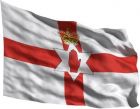 | 1st cycle full-time programmes: fees are set by institutions but capped at GBP 3 925. Students are not required to
pay up front and can apply for a loan to cover the full fee.
1st cycle part-time programmes: fees are unregulated and loans are not available. 2nd cycle: fees are unregulated and vary widely. The 'most common' shown (GBP 4 121) represents an indicative fee level for research students in 2016/17 set by Research Councils UK. Short cycle programmes: the same fees apply as for students taking 1st cycle programmes. 1st and 2nd cycle international students: fees are unregulated. |
Poland 2013/14 - student fees and grants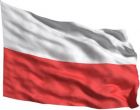 | Students pay administrative fees which include the issue of student ID cards, student record books and diplomas.
Fee amounts are defined annually by the Minister of Science and Higher Education. Students also pay a fee related
to enrolment procedures. The maximum possible amount of this fee is defined annually by the Minister, while the
actual amounts are decided by rectors of individual higher education institutions (HEIs). The amount of the fees
altogether is approximately PLN 170. The amount is paid once per cycle not every year.
Tuition fees, set by public higher education institutions, are generally paid by part-time students only with exemptions and reductions possible mainly on the basis of low economic status or excellent results. Detailed rules regulating the actual amounts of tuition fees and the mode and conditions for exemptions are laid out by the senates of particular institutions. Full-time students in public HEIs pay fees only if they repeat a study course due to unsatisfactory academic results. Students from the EU and EFTA countries and some other defined categories of students (e.g. students with refugee status) study according to the same rules as Polish citizens. Fees for international students other than these are decided by the senates of individual HEIs. |
Poland 2015/16 - student fees and grants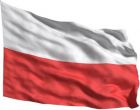 | Financial support is granted to students in the following forms: a needs-based grant available for students with a
low personal/family income, a needs-based grant available for students with disability, emergency grant/ allowance
and merit-based grant for best students. The income threshold to be eligible for need-based grants for students
with low family income is PLN 592.80-850.20 per person per year (from 1 November 2012).
The average amount of the need-based grant is PLN 2 783 (2011). The average amount of the merit-based grant is PLN 1 035 with a maximum of PLN 14 000. Students from the EU and EFTA countries and some other defined categories of students (e.g. students with refugee status) study according to the same rules as Polish citizens. Fees for international students other than these are decided by the HEIs. |
Poland 2016/17 - student fees and grants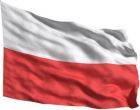 | Full-time students in public higher education institutions are charged tuition fees only if repeating a study course.
Part-time students pay annual tuition fees of, on average, about PLN 4 700 set by higher education institutions.
Each institution may provide exemptions and reductions.
All students pay a maximum fee of PLN 150 related to enrolment procedures once per study cycle. Students also pay administrative fees which include the issue of student ID cards, student record books and diplomas. There is no short cycle programme in Poland. Students from the EU and EFTA countries and other defined categories (e.g. students with refugee status) study according to the same rules as Polish citizens. Fees for other international students are decided by HEIs. |
Portugal 2013/14 - student fees and grants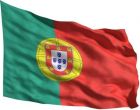 | The annual tuition fee for 1st cycle courses, integrated 2nd cycle courses (mestrados integrados) and for 2nd cycle
courses (mestrados) that are legally needed after the 1st cycle course for the practice of a specific profession is fixed
by each public higher education institution and range from EUR 630.50 to EUR 1 065.72.
For other cases in the 2nd cycle courses, tuition fee is fixed freely by public higher education institutions. The minimum value of the above fees is calculated as a 1.3 times the national minimum wage at the beginning of each school year. The maximum wage value is updated every year according to the rate of inflation. The most institutions adopt the maximum value. International students pay higher fees than national students. |
Portugal 2015/16 - student fees and grants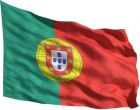 | The annual tuition fee for 1st cycle courses, integrated 2nd cycle courses (mestrados integrados) and for 2nd cycle courses (mestrados) that are legally required after the 1st cycle course for the practice of a specific profession is fixed by each public higher education institution. It ranges from EUR 656.50 to 1 063.00. For all other cases in the 2nd cycle, tuition fees are fixed freely by public higher education institutions with no limits imposed. Those courses are not legally required for the practice of a specific profession. The minimum value of the above fees is calculated as a 1.3 times the national minimum wage at the beginning of each school year. The maximum wage value is updated every year according to the rate of inflation. Most institutions adopt the maximum value. International students pay higher fees than national students, and higher education institutions are autonomous to decide on the amounts charged. |
Portugal 2016/17 - student fees and grants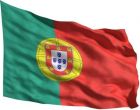 | The annual tuition fee for 1st cycle programmes, integrated 2nd cycle programmes (mestrados integrados) and for
2nd cycle programmes (mestrados) that are legally required after a 1st cycle degree for the practice of a specific
profession is fixed by each public higher education institution. It ranges from EUR 656.50 to 1 063.47. Both
minimum and maximum values of the above fees are frozen for the 2016/17 academic year.
For all other 2nd cycle programmes, tuition fees are set freely by public higher education institutions, with no limits imposed. There is a wide range of tuition fees depending mainly on the cost and quality of the course. The annual tuition fee for short cycle programmes are defined by individual institutions. It cannot be above EUR 1 063.00 (the maximum value for the 1st cycle courses, integrated 2nd cycle courses and for 2nd cycle courses legally required for the practice of a specific profession). International students pay higher fees than national students, and higher education institutions are autonomous to decide on the amounts charged. |
Romania 2013/14 - student fees and grants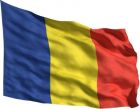 | Each university senate decides on the level of fees for all programmes. The senate also decides on exemptions
based on need or merit. All students pay administrative fees to register.
Uniform allowances are calculated based on the number of students and the amount of state budget. In the academic year 2012/13, the fees range as follows: RON 2 341 for social science fields (36 % of students); RON 4 097 for technical fields (36 % of students) and maximum of RON 12 571 for arts (0.09 % of students). International students pay fees. The value of the minimum fee is set by the law 1/06.01.2010 for each field. |
Romania 2015/16 - student fees and grants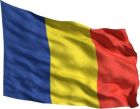 | Each university senate decides on the level of fees for all programmes. The senate also decides on exemptions based on need or merit. All students pay administrative fees to register, and the level of these fees is also decided by higher education institution. Fees are calculated based on the average allocation per physical student number of full-time students and the amount of state budget. In the academic year 2014/15, the fees range as follows:
International students pay fees. The value of the minimum fee is set by law for each field. |
Romania 2016/17 - student fees and grants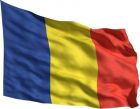 | There are two types of financial status for students: state-funded and self-financed. Each year, the government
decides on the number of state funded places. All students pay registration fees set by higher education
institutions.
For fee-paying students, each university senate decides on the level of fees for each programme, as well as on exemptions based on need or merit. Fees are calculated on the basis of the average number of full-time students and the amount of state budget: For the first cycle: RON 2 410 for social science fields; RON 4 752.96 for engineering and computer systems fields and maximum of RON 23 166.91 for arts (film). For the second cycle: RON 4874.56 for social science fields; RON 8 230 for engineering and computer systems fields and maximum of RON 36 591.16 for arts (film). There is no short cycle higher education provision in Romania. International students pay fees. The value of the minimum fee is set by law for each field. |
Scotland 2013/14 - student fees and grants |
For the first cycle, the Scottish Government pays the tuition fees for Scottish and EU students. For 2013/14, fees
are set at GBP 1 820.
Scottish (and non-UK EU) students do not pay tuition fees to study at Scottish universities, but must pay full fees to study at universities in other parts of the UK. Students from England, Wales and Northern Ireland are required to pay fees to study at universities in Scotland. Fees are charged to students from the rest of the UK at a level of up to a maximum of GBP 9 000. The GBP 9 000 cap on fees for students from the rest of the UK is set by the sector as part of a voluntary agreement. This will, going forward, be set in legislation through the Post 16 Education (Scotland) Bill which is due to come into force in November 2013. Fees for international (non-EU) students are unregulated and set by the higher education institutions. The fee and support system has been developed for students in the first cycle. In the second cycle, fees are unregulated, differing by field of study and by mode of attendance (i.e. full- or part-time). |
Scotland 2015/16 - student fees and grants | For the first cycle, the Scottish Government pays the tuition fees for full-time Scottish and EU students (with the exception of those from England, Wales and Northern Ireland). For 2014/15, fees are set at GBP 1 820. Fees for part-time students are unregulated but are usually a proportion of the full-time equivalent fee. Scottish (and non-UK EU) students do not pay tuition fees to study at Scottish universities, but must pay full fees to study at universities in other parts of the UK. Students from England, Wales and Northern Ireland are required to pay fees to study at universities in Scotland. Fees are charged to students from the rest of the UK at a level of up to a maximum of GBP 9 000, in line with the maximum fee charged in the rest of the UK. The GBP 9 000 cap on fees for students from the rest of the UK is set by the sector as part of a voluntary agreement. Fees for international (non-EU) students are unregulated and set by the higher education institutions. The fee and support system has been developed for students in the first cycle. In the second cycle, fees are unregulated, differing by field of study and by mode of attendance (i.e. full- or part-time). |
Scotland 2016/17 - student fees and grants | For the short cycle and first cycle, full-time Scottish and EU students do not pay fees. Students from England,
Wales and Northern Ireland are required to pay fees up to a maximum of GBP 9 000, in line with the maximum fee
charged in the rest of the UK. Fees for part-time students are unregulated but are usually a proportion of the full-
time equivalent fee.
In the second cycle, fees are unregulated, differing by field of study and full- or part-time attendance. Fees for international (non-EU) students are unregulated and set by the higher education institutions. |
Serbia 2016/17 - student fees and grants | Students in public higher education institutions can be 'budget-financed' and 'self-financing'. Only full-time student
status exists. 'Budget-financed' students (42.96 % in 2016) are selected at entry based on entrance exam score
and secondary school results, and during the course based on their study performance. Their tuition fees are
covered by the state, while students pay administrative and other costs (entrance and application fees, fees for
issuing diploma and diploma supplement, etc.) ranging from RSD 4 000 to 30 000 per year.
'Self-financed' students pay both administrative and tuition fees, which range from RSD 30 000 to 248 500 per year on Bachelor level and RSD 40 000 to 785 492 on Master level, including both academic and applied studies. There is no short cycle programme in higher education in Serbia. Foreign students usually pay higher tuition fees. The most common annual fee is EUR 2 000. |
Slovakia 2013/14 - student fees and grants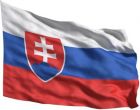 | All students pay registration fees of EUR 10 to 100 per academic year. Full-time students of public higher
education institutions not exceeding the 'regular' length of study for the study programme concerned do not pay
tuition fees.
Students who exceed a 'regular' length of study, or who study two or more programmes concurrently in one academic year have to pay tuition fees which cannot exceed EUR 1 525/academic year for both first and second cycle. Students admitted to an external/part-time study programme have to pay fees from EUR 630 to 1 960/year in the first cycle and from EUR 950 to 2 940/year in the second cycle. Tuition and other fees at public higher education institutions cannot exceed 50 % of the average costs of full-time education. Non-EU students pay higher tuition fees of EUR 2 000 to 10 000/year. |
Slovakia 2015/16 - student fees and grants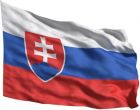 | All students pay registration fees of EUR 10 to EUR 100 per academic year. Full-time students of public higher education institutions not exceeding the 'regular' length of study for the study programme concerned do not pay tuition fees. Students who exceed a 'regular' length of study, or who study two or more programmes concurrently in one academic year have to pay tuition fees which cannot exceed EUR 1 675 per academic year for both first and second cycle studies. Students admitted to an external/part-time study programme have to pay fees up to a maximum of EUR 1 960 per year in the first cycle and EUR 2 940 per year in the second cycle. Students in a study programme which is provided exclusively in a language other than the state language have to pay tuition fees, which are set by respective higher education institutions. Tuition and other fees at public higher education institutions cannot exceed 50 % of the average costs of full-time education. Non-EU students pay higher tuition fees of EUR 2 000 to 10 000/year. |
Slovakia 2016/17 - student fees and grants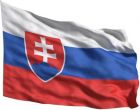 | All students pay registration fees of EUR 10 to EUR 100 per academic year. Full-time (short, 1st and 2nd cycle)
students in public higher education institutions not exceeding the 'regular' length of study for the study programme
do not pay tuition fees.
Students who exceed a 'regular' length of study, or who study two or more programmes concurrently in the same academic year have to pay tuition fees which cannot exceed EUR 1 800 per academic year for both first and second cycle studies. Students admitted to an external/part-time study programme pay fees up to an annual maximum of EUR 2 050 in the first cycle and EUR 3 080 in the second cycle. Students in a study programme which is provided exclusively in a language other than the state language pay tuition fees, which are set by respective higher education institutions. Tuition and other fees at public higher education institutions cannot exceed 50 % of the average costs of full-time education. Non-EU students pay higher tuition fees of EUR 2 000 to 10 000/year. |
Slovenia 2013/14 - student fees and grants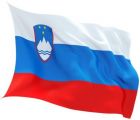 | Full-time students of public higher education institutions on state-funded places do not pay tuition fees. They pay
only registration charges and costs of examinations that are repeated.
Full-time students at public higher education institutions without a state-funded study place, part-time students and international students from outside EU pay the same fees. Amounts range from EUR 1 210 to 9 375 for the first cycle and from EUR 1 260 to 12 462 for the second cycle. Amounts apply to University of Ljubljana. |
Slovenia 2015/16 - student fees and grants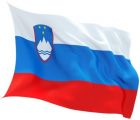 | No tuition fees for national and EU full-time students. They pay only registration charges (EUR 16-29), and costs of field work and excursions if required by study programme. Part-time students and international students pay the same fees. These are set by higher education institutions. Amounts range from EUR 1 210 to EUR 8 110 for the first cycle and from EUR 2 068 to EUR 15 831 EUR for the second cycle. |
Slovenia 2016/17 - student fees and grants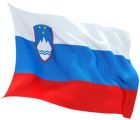 | Full-time students pay only registration charges (short cycle: EUR 20-30; 1st and 2nd cycle: EUR 21-29), and
costs of field work and excursions if required by study programme. No tuition fees for national and EU full-time
students.
Part-time students and international students pay the same fees which are set by higher education institutions. Tuition fees in the first cycle range from EUR 1 950 to EUR 9 020 and from EUR 800 to EUR 15 831 EUR for the second cycle. Tuition fees in short-cycle higher education range from EUR 1 045 to EUR 3 250. |
Spain 2013/14 - student fees and grants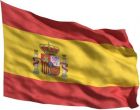 |
The amount of fees is determined by the kind of the studies, the number of ECTS taken and the number of exams
failed in each subject. In addition, amounts differ between regions as each one has a different range.
For international students (from outside the European Union) who have not set their residence in Spain, the fees can be increased, depending on the region. Exemptions from fees are based in need criteria (family income being the most significant one), but a minimum level of academic performance is also required. Also, large families and disabled persons have very significant discounts, and may even be exempt. In the current economic crisis context, the government approved a new decree-act on urgent measures for rationalization of public expenditure in education in 2012. One of the measures adopted in this act is that university students have to cover between 15 % and 25 % of the real total cost of their studies (to be decided by each Autonomous Community). These urgent measures were implemented in the academic year 2012/13. |